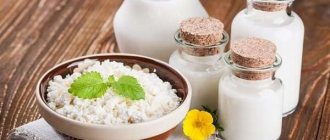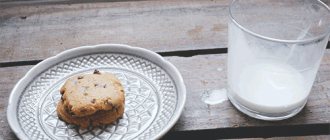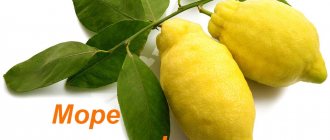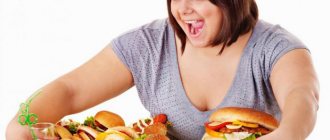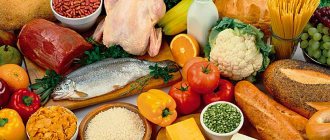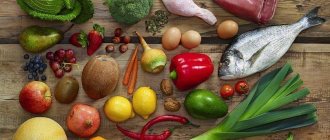Author: Mikhail Ziborov - author of the website makefitness.pro | more details >> I am a swimming coach at a youth sports school and a gym instructor.
Place in the ranking of authors:
17
(become an author) Date: 2020-10-24 Views: 5,280 Rating: 5.0
| All articles by the author >> | Medals articles >> |
Articles are loading...
From the material you will learn:
1. What is edema. 2. How to understand how flooded you are. 3. So does it flood or not?
People often tend to exaggerate the scale of a tragedy and demonize specific products. For example, about 20 years ago it was heard everywhere that cholesterol was extremely harmful. And, accordingly, you need to give up foods (butter, egg yolks, etc.) containing cholesterol.
But time passed, significant evidence and a lot of research appeared saying that we need cholesterol for the synthesis of hormones, vitamin D and much more. And, as it turns out, butter and egg yolks are not at all dangerous if you don’t overdo them!
The same trend can already be seen with other products: today sugar is demonized, they say, it makes you fat; gluten, they say, is the cause of all sorts of disorders. Now we’ve got to dairy and fermented milk products, which cause swelling or cellulite (“flooding” with water), increase general inflammation in the body, etc. We are interested in the swelling from the milk.
What is swelling
Edema
- This is fluid retention in the body. Slightly larger than under normal conditions, and much smaller than with edema, when the legs/arms swell and it is impossible to remove shoes/rings. Swelling in women can also manifest as cellulite. As a rule, cellulite is fluid retention in the fatty tissue on the buttocks, which looks like an “orange peel”. I wrote in detail about edema here:
So. The following people are afraid of retaining excess water: - women (those who are simply on diets, “fitness girls” or who read various Instagram bloggers);
- athletes of power sports, especially bodybuilding (they say it worsens the body’s definition, etc.).
But there is one “BUT”. We are not afraid of edema from an imbalance in the water-salt balance, we are not afraid of large amounts of fluid retention due to excessive consumption of carbohydrates, we are not afraid of water accumulation due to taking creatine or methandienone. But from milk - yes, it’s scary (I’m being ironic).
In general, professional athletes began to talk about what milk causes. But for ordinary people, the recommendations of the pros do not work! Where did the opinion come from that dairy products lead to edema - CLICK HERE https://makefitness.pro/tvorog_na_noch/.
Products retain liquid
Foods high in sodium chloride, creatine and caffeine lead to fluid accumulation. Contrary to popular belief, foods that retain water in the body can be not only salty and sweet. Lovers of very sweet tea and coffee should pay attention to increased insulin levels, since this hormone promotes fluid retention. Drinking alcoholic beverages leads to water retention.
Salt containing products
For normal human life, the body needs sodium chloride. Salt not only retains water, but is also a supplier of vital ions. An excess or deficiency of this substance is equally harmful to humans. Most food products contain sodium chloride, even if at first glance they do not taste salty.
Most salt is found in prepared foods, which contain preservatives, dyes, and other food additives. Such as: sausages, chips, mayonnaise, ketchup, marinades, pickles, crackers, smoked foods and other instant foods.
Sauerkraut
It is impossible to imagine a dinner table in the cold season without sauerkraut. This dish is not only tasty, but also very healthy. However, if you have hypertension and kidney pathology, consuming this dish is strictly prohibited. Sauerkraut contains a large amount of salt, which can cause edema or a hypertensive crisis.
Daily salt intake
For the average adult, the daily requirement is approximately 15 grams. Note! The daily requirement includes sodium chloride, which is found in food. Scientists have calculated that products for daily consumption contain about 10 grams of the substance. From the above information it follows that a person needs no more than 5 grams of salt per day for normal life support.
Sodium chloride is necessary to maintain acid-base balance in the body. People who consume salt in excessive quantities can cause serious harm to their health. Excess of the substance contributes to active water retention, which leads to exacerbation of chronic diseases of the cardiovascular, urinary and endocrine systems. If a person has been diagnosed with the above diseases, then he needs to reduce his salt intake to 1.5 grams. Some patients with hypertension who completely eliminated salt from their diet managed to stabilize their blood pressure. The daily dose of sodium chloride can be obtained from commercially prepared food. This refers to the following food additives: E339, E301, E211, E401, E500.
Creatine and water release
Supporters of a sports lifestyle use creatine to improve muscle growth and increase endurance. If you follow the dosage (no more than 25 grams/day), then this substance is safe for health. Creatine can be partially synthesized in the human body. The food additive is found in small quantities in meat and fish products. When consumed in excess, creatine retains water. The volume of excess liquid can reach 2 liters. Edema resulting from excessive consumption of creatine cannot be removed with the help of diuretics and reducing the drinking regime. This will not only not bring the desired effect, but will also cause dehydration, since all the water will be used to increase muscle mass. In order to restore water and electrolyte balance, a person will need to drink 3 liters of water per day.
The effect of coffee on water balance
It is quite difficult to answer the question of whether coffee retains water in the body, since the physiological effect of the drink depends on many factors. Coffee retains water in the body; if you drink less than three cups a day, it leads to the formation of edema. Excessive consumption of sweet drinks has a diuretic effect. For these reasons, pregnant women are strictly prohibited from drinking coffee.
Dairy
As a result of numerous studies, scientists have found that milk, cottage cheese and other fermented milk products retain fluid. The leading cause of this phenomenon is the release of insulin. Increasing the concentration of pancreatic hormone increases the production of aldosterone. This substance retains sodium chloride. For quick recovery after excessive physical activity and training, nutritionists recommend consuming dairy products.
Toxins and water retention
Alcohol, medications, and other toxic compounds slow down the removal of fluid from the body. The body perceives all of the above substances as poisons and therefore tries to neutralize them. The protective mechanism is aimed at dissolving and reducing the negative impact on humans.
Milk can still make you feel ill
Yes, indeed, dairy products can contribute to fluid accumulation. BUT! This is not due to the fact that dairy products are somehow bad in themselves, but because they (in particular, cottage cheese) contain a lot of sodium - Na. Let me remind you that table salt is sodium chlorine (NaCl). And there is such a thing as water-salt balance. And if this balance is disturbed, the body tends to accumulate fluid. Hence the swelling.
Women on diets usually eliminate some foods completely or significantly reduce their amounts. For example, salt or products containing it. The body does not receive enough sodium, the water-salt balance is skewed. And since dairy products contain a lot of sodium, by eating such products, the water-salt balance is normalized, water immediately accumulates (directly from cottage cheese or milk - they are very watery). The body simply comes into balance, but we think that we are flooded.
The picture is similar with athletes who are losing weight or “drying out.” In most cases, everything is tied to sodium (as well as potassium), and not to milk or other products. Here is confirmation of my words from Andrey Skoromny in two parts: https://www.instagram.com/p/B7WRVzdoj23/?igshid=1p21itpbzpruf https://www.instagram.com/p/B7aIv0XoCuS/?igshid=hdl9yeqdamiy
By the way, too much sodium (salt) also leads to water storage. And, perhaps, you are oversupplying salts in general, and then you also get a significant portion from dairy products. No wonder you're flooded.
Follow the link for information from Stanislav Lindover that some people can actually get sick from dairy products. The reasons are also explained. Mainly information for dieters and cutting athletes. https://www.instagram.com/p/CBDidIpJZTk/?igshid=pa4luje0tk6z
How to fight
Please note the following recommendations:
- Drink at least 1.5-2 liters of liquid per day (this should be non-carbonated clean water). The body will not lack fluid and accumulate it.
- Regular physical activity and walks in the fresh air will improve kidney function and stabilize metabolic processes.
- A visit to the sauna or steam bath will help remove excess fluid.
- When cooking, try to add a minimum of salt.
- Drinks rich in fiber and potassium (green and hibiscus teas) help eliminate fluid.
Products that remove water
These include:
- Fruits and berries (blueberries, watermelons, cranberries, chokeberries, viburnum, strawberries).
- Vegetables (cabbage, lettuce, asparagus, zucchini, bell pepper, beets).
- Buckwheat.
- Dill.
Important! Before starting treatment, you should consult a doctor and do an ultrasound to check for kidney stones. In case of renal failure, use should be careful.
Diet that removes fluid
There is a specially designed nutrition system that will help get rid of swelling. Basic Rules:
- Minimum salt.
- Include the above fruits, vegetables, and cereals in your diet.
- Avoid coffee and alcohol.
- Do not eat spicy food.
Sample menu for a week (assuming 5 meals):
Day 1:
- Milk oatmeal and a glass of tea.
- Baked apples, fruit juice.
- Vegetable soup, pasta with a piece of steamed fish.
- One banana, cranberry drink.
- Cottage cheese casserole (you can diversify it with honey), a glass of low-fat milk.
Day 2:
- Egg white omelette, a portion of vinaigrette, rosehip infusion.
- Stewed pumpkin, mint tea.
- Barley soup without meat, some boiled potatoes with tomato salad dressed with olive oil.
- Berries.
- Vermicelli boiled in milk, fresh juice.
Day 3:
- Dumplings in milk sauce, green tea.
- Fruit salad and drink (juice).
- Fish soup, buckwheat with meatballs and vinaigrette.
- Curd pudding with a glass of rosehip infusion.
- Vegetable stew, a piece of boiled turkey meat, mint tea.
Day 4:
- Egg white omelette with stewed vegetables, a glass of fruit jelly.
- Tomato juice.
- Rice soup, noodles with steamed fish, cabbage salad.
- Fruit jelly.
- Cottage cheese casserole in sour cream sauce.
Day 5:
- Oatmeal porridge with dried apricots, hibiscus tea. Other options for porridge are corn and buckwheat.
- Fruit jelly with juice.
- Vegetable soup, pilaf with sour cream.
- A piece of melon, a nettle drink.
- Vinaigrette, a little boiled white fish, mint tea.
How to understand when it is heavily “flooded” and when everything is within normal limits
If you experience severe swelling after eating dairy products, this may indicate serious nutritional or health problems.
Significant swelling
- this is when it is difficult for you to take off your shoes (your feet are so swollen), jewelry (for example, rings), or it is simply visible to the naked eye that you are swollen.
Simple fluid accumulation
– this is when the structure of the body changes slightly, i.e. The detail of the muscles is not so clearly expressed, the fullness of the muscles is barely noticeable, and the like. If it is the second variant of edema that occurs, then this is normal. And it only says that somewhere you have too much/not enough salt (sodium).
An easy way to assess your swelling: https://www.instagram.com/p/CAgDTeTBSHW/?igshid=1v6il3o064hgt
Salts and trace elements
Every day we lose salt and minerals through sweat and urine. And if you do not replenish salt to the required amount, then there will be swelling. In the last article, we learned that if there are not enough salts in the cell, then it releases too much water into the intercellular space. This is bad for her. The most important salt for us is NaCl (table salt). The average content of this salt in the body is approximately 100 g. More than 90% of the salt is located outside the cells and about 70% is actively exchanged between the intra- and intercellular space. Na plays a key role in the volume of blood and water that is found in the extracellular space. Here the myth that salt is harmful and it is better not to eat it at all collapses. It, like water, is harmful only in case of excessive consumption. And if we sometimes want something salty, then we don’t have to deny ourselves - perhaps the body is giving us a signal that there is a lack of Na in the body.
Fact
Animals that live far from sources of salt actively seek it. They replenish their salt reserves by finding salt marshes and licking salty rocks. Animals do this for a reason - their instincts tell them. Macro- and microelements are important - Na, Cl, K, F, Ca, Se, Mg, I, Cu, F, S. They maintain electrolyte balance and the functioning of the body as a whole. These elements are not synthesized by the body, so you need to structure your diet so that they enter the body from the outside.
How to Reduce Damage to Your Diet
As you understand, excess weight gain is no longer provoked by alcohol, but by the factors accompanying it (but this is still not a reason to abuse it). In situations where you want to treat yourself to something hot, but without harming your figure, adhere to the following rules:
- Choose low-alcohol, low-sugar drinks. A glass of dry red wine or a little champagne will do.
- Be careful with . Instead of chips and sausages, prefer assorted fresh vegetables and lean meat or fish.
- Avoid sugary cocktails.
- To avoid dehydration, drink clean water during the holiday. Then the next morning you won't have such a strong hangover and thirst.
- The next day after the feast, postpone jogging and morning workouts. Allow your body to recover normally and gain strength.
Water is the source of human life. If it begins to accumulate in the body, excess weight and swelling appear. This can trigger the development of serious diseases. Simple methods accessible to everyone will help to cope with this problem.
Preventing fluid accumulation
Regular exercise and proper nutrition are the best prevention of fluid accumulation. Every person must maintain a drinking regime and consume at least 1.5-2 liters of water per day. Nutrition must be correct and rational. Foods high in sugar and salt should be avoided. Instead of sweets, you can eat dried fruits in small quantities. If nutritional correction and an active lifestyle do not help solve the problem with swelling, then you need to seek help from a doctor. It is strictly forbidden to take diuretics or herbal remedies on your own. Uncontrolled use can cause dehydration and other complications.
Source: watercons.ru
If you collect a majority of votes in the Slimming Club, then the accusation in this case, one might say, has already been passed.
Namely, rice retains fluid in the body, so after eating it, weight gain is noticed. To be honest, only in the CS I came across such a total opinion. It is known that rice can cause constipation, but swelling... this is something new, at least for me. So, the desire to get to the bottom of the truth took me far into the vastness of the Internet. And what do you think? Well, I didn’t find anything about fluid retention from rice. NOTHING!!!! So I decided to appeal the rice decision! I will not copy encyclopedic information here. Who, what and what is he, this figure. If desired, anyone can type 3 letters in a search engine and open the first link they come across. I will speak to the essence of this matter. It is known for certain that rice removes salt from the body, which certainly affects the water circulation in our body. So, in theory, excess salt and fluid leave the body along with the rice, and do not accumulate in it. Rice contains almost no salt, so it is recommended for people with kidney diseases, as well as for those who want to lose weight. I think if rice affected fluid retention, doctors would not stuff this product into those who already have enough problems with the genitourinary system. Among the MAIN medicinal properties of rice, the following is mentioned: Rice is useful for kidney and bladder diseases. Rice is an effective cleanser, including for the genitourinary area. Rice has a beneficial effect on the skin, relieving swelling. Now I will say a few words from myself.
I personally conducted a test on myself by eating a huge plate of cooked 100 grams of dry rice, overnight. Not only did I consume 333 kcal of solid carbohydrates before going to bed in search of adventure in the form of weight gain, but I also risked getting colossal swelling and fluid retention in the body in the morning. And this danger, which the CS regulars promised me, was doubled, because now my body is already tuned to edema due to PMS. So, what happened in the morning? And in the morning I felt great and lost 500 grams of net weight! No swelling, fluid retention or terrible appearance. And this despite the fact that before the night rice I had a completely rational diet during the day: a milk and cereal breakfast, a fish and vegetable lunch, fruit snacks and bread. That's how things are. I would like to know which of the slimming people will join Rice's lawyers or his prosecutors? :))))) Source: www.BabyBlog.ru
Water retention in the body can be caused by various reasons. It is worth noting that women face this problem much more often than men.
The second (after ovulation) half of the monthly cycle, hormonal changes due to taking contraceptives, insufficient kidney function, excessive salt intake and even too little fluid entering the body every day can lead to undesirable consequences. These reasons are the main ones, but not the only possible ones.
To determine what exactly caused the problem, you should consult a doctor and, perhaps, critically evaluate your lifestyle.
Signs of water retention in the body are most often visible to the naked eye. It is worth paying attention to excessive swelling, swelling (even slight) of the face and the whole body, the difference in appearance in the morning and evening. If in the morning your face seems “puffed up”, and by the evening this goes away, you are dealing with fluid “walking” through the body. There is also a possibility of fluid retention in the body if you are trying to lose weight through diets and exercise, but your weight remains the same, although it should be decreasing. In this case, the body gains the missing kilograms from water.
So how do you get rid of excess water in the body? One of the options is quite radical: go to the pharmacy and buy the appropriate medications. They help the kidneys (which are responsible for fluid circulation) cope with their work and at the same time trigger diuretic processes. But you shouldn’t use pills too often, as this can cause banal addiction: your body will forget how to get rid of liquid on its own.
If you want to use a more natural and gentle method, first of all try to determine the reasons for the formation of excess water. For example, this phenomenon is a side effect of most hormonal contraceptives. Or maybe you're chronically dehydrated. Nowadays, few people drink the required amount of water per day. According to doctors, the minimum fluid intake is one and a half liters for women and two for men. However, this norm is not suitable for people suffering from kidney disease. They should separately discuss the amount of fluid they drink per day with their doctor.
Another common option is dehydration due to vigorous physical activity or visiting a sauna. Such dehydration is local, that is, it lasts for several hours after the above actions and causes the body to go into stress mode and accumulate water the first time it comes in. Or maybe you’re just overloading on salty foods, preservatives, and a variety of spices?
Once you have identified the cause, if possible, eliminate it as much as your lifestyle allows. But in any case, whether it can be fixed or not, you should:
. 1. Review your diet . Salt retains water in the body, so during the period of active relief from the problem, try not to add salt to food at all. Also, remember that many foods contain salt to begin with. In addition to water retention, the main component of salt - sodium - helps to remove potassium from the body, which is essential for our heart. Water can also accumulate in the body due to the consumption of any alcoholic beverages, sugar (in any form) and preservatives, which are mostly rich in sodium. Conclusion: food needs to become healthier. This will bring tangible benefits to the entire body.
2. Add natural diuretics to your food. A diuretic is a substance that accelerates diuretic processes in the body, including increased sweating. The most famous natural diuretics are watermelon, celery, red, yellow and green bell peppers, green tea, nettle, dill, buckwheat porridge, cucumber, beets. It is worth paying attention to foods that speed up metabolism and the introduction of toxins: carrots, Brussels sprouts, tomatoes. Dried apple peels brewed with boiling water have an excellent effect. In a word, load up on vegetables. They do not contain salt and help remove excess fluid from the body, partly due to fiber, which cleanses it of toxins.
3. Start taking one of the quality vitamin complexes. Another possible reason for fluid retention in the body is the lack of vitamins and amino acids that we so need. When our cells run out of nutrients, more than necessary amounts of water can replace them. Be sure to pay attention to potassium and B vitamins (their deficiency especially provokes the accumulation of water in the tissues). In addition, in the process of getting rid of excess fluid, the body will be “flushed”, which means that in addition to toxins, useful substances can also be removed. Therefore, taking vitamins during this period is mandatory for those who do not want to have problems with health and appearance.
4. Drink more water. Remember that it is best not to replace water with other drinks, such as tea, compote, coffee or lemonade. Water is a kind of equivalent of all substances in the body: by adding sugar to your drink, you also retain liquid. For example, lemonades do not quench your thirst at all, because they contain more sugar than the liquid that it “takes away.” Try to switch to clean water and green tea. Over time, your body will get used to it and will begin to recognize only water as a “real” drink, and then it will be easier for you to give up other drinks. Remember: your urine should always be clear, because this is a sign of adequate fluid intake.
5. Visit your doctor. The cause of your problem may be not only harmless salt in the body, but also serious diseases such as food allergies, hypothyroidism (decreased thyroid function), hormone imbalance, poor liver, kidney or heart function, and even diabetes. To rule out extremes, visit a specialist and get the necessary tests. Finally, it should be noted that the emotional state also seriously affects fluid retention. Depression, tension and stress contribute to it. Therefore, enjoy life, relax more often and do not keep negative emotions inside.
How to reduce the amount of fluid in your body and cope with swelling yourself
If you think this is your case, don’t fall into temptation and start drinking less! The kidneys must be able to remove all waste from the circulatory system. otherwise you will only make the situation worse.
The best drink is water. The worst are tea (except herbal), coffee. They remove water from the body and force more fluid to be taken from the blood than it should be. When fluid accumulates, such drinks only make the situation worse.
Alcohol practically dehydrates you! It reduces the effect of antidiuretic hormone, which slows urine production when fluid levels in the vessels drop. There are completely harmless measures that will help relieve swelling and reduce the amount of fluid in your body.
Swelling and excess weight occur not because we drink a lot of water, but because certain substances retain it in the body. This means that the problem of edema can be solved by giving up these substances - primarily salt and carbohydrates.
Foods not allowed: Sugar, honey, syrup and all products containing them, dairy products, eggs, yeast, any red meat, salt and all salty foods, including ham, bacon, smoked fish, cheeses, cakes, pastries, chocolate, potato chips , butter, margarine, fried foods, cream, mayonnaise, baked goods, sauces, gravies, fatty desserts, wheat flour, alcohol and foods containing artificial additives.
You can eat: Soy milk and yogurt (natural, without additives), fruits (except grapes and bananas), vegetables (except potatoes), seeds, nuts, oatmeal, brown rice, legumes, lean poultry and fish. You can drink freshly squeezed juices, herbal teas, and other low-caffeine drinks.
The number of permitted foods is not limited - you can eat as much as you want.
Efficiency: in the first week, weight loss can reach 6 kg ( this is due to fluid loss). After that, the pace will not be so noticeable, but 1-2 kg per week is a very realistic result.
Periodic use of this system a week before your period can significantly alleviate PMS, or even get rid of it altogether.
Herbal decoctions and teas that reduce swelling Melissa Lingonberry tea Rosehip decoction Caraway decoction Hawthorn decoction Mate Water with lemon juice Complex pharmaceutical preparations, which usually include: bearberry, knotweed, nettle, horsetail and other herbs.
Foods that reduce swelling Watermelon, cucumbers, melon Celery Beans Baked potatoes Green apples Oats Low-fat milk and kefir Honey Viburnum juice, rowan berries Sorrel Nettle Beets
What else helps reduce swelling? Sauna, bath, bath
Bath recipe to relieve swelling and excess fluid
Pour water at a temperature of 37-38 C° into the bath, dilute 300 g of sea salt and a pack of soda in it. The time for taking such a bath is approximately half an hour. You should not drink 2 hours before the bath and 2 hours after. You can repeat this procedure 3 times a week. This bath helps you lose 500-700 g of weight per procedure.
Cold and hot shower
A contrast shower helps strengthen the blood vessels in the legs. It is not necessary to specifically set aside time for this; after a normal shower, change the water several times from hot to cool and vice versa. There is no need to turn on ice water; leave it at a temperature that does not irritate you. You need to approach colder water gradually. Contrast baths can only be done for the feet. The basic rule of such procedures is that you need to finish in cool water.
Source: www.liveinternet.ru
Benefits of drinking rice water daily
Rice water to cleanse the body
Rice water contains a large amount of starch, which is an excellent sorbent that removes toxins, metabolites, mucus and radionuclides from the body.
By drinking rice water daily for a month, your body will forget about:
- Frequent headaches.
- Fatigue.
- Irritability.
- Problems with sleep.
- Acne and skin inflammation.
- Frequent colds.
- Joint pain.
- Bad breath.
Rice water for digestion
Drinking a glass of rice water in the evening, after 3 weeks you will not only normalize the intestinal microflora and improve the digestive process, but also get rid of the feeling of heaviness and fullness in the stomach.
Yogurt
Yogurts, as you know, do not contain lactose, but recently lovers of these products have also begun to notice swelling on their bodies. Israeli scientists from the Weizmann Multidisciplinary Research Institute became interested in why such negative consequences appear after such a healthy meal. They conducted routine testing on more than a dozen samples of very popular European, as well as less expensive, local yogurt products, and noticed a general trend. Almost all manufacturers began to use modified starch instead of natural starch as thickeners. However, such a substance not only retains water in the body, but also often causes fermentation in the intestines. This does not cause serious harm to the body, but such a product can no longer be called useful. For people seeking to lead a healthy lifestyle, it is now better to exclude any yoghurt from their diet. Modified starch is much cheaper than its natural counterpart and it is not surprising that due to the widespread economic crisis, many global manufacturers have changed the composition of their products.
Rice with vegetables
Things are a little worse with this dish. It looks innocent, but looks can be deceiving! High-quality whole grain rice is praised by all athletes and those working on weight loss. They are absolutely right about the benefits of rice, but if you eat a big plate of pilaf and then collapse on the couch, you will not take a step towards losing weight. Rice is full of carbohydrates, which when consumed in high quantities cause water to accumulate in the body.
Rice dishes can be eaten, but be careful with the quantity and timing. The energy you get will be better spent if you eat rice for lunch and start watching your carbohydrate intake from 2 p.m.
